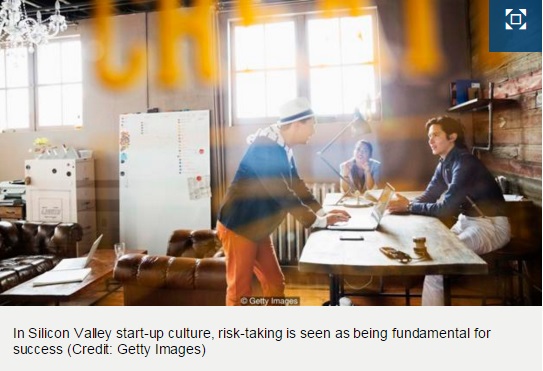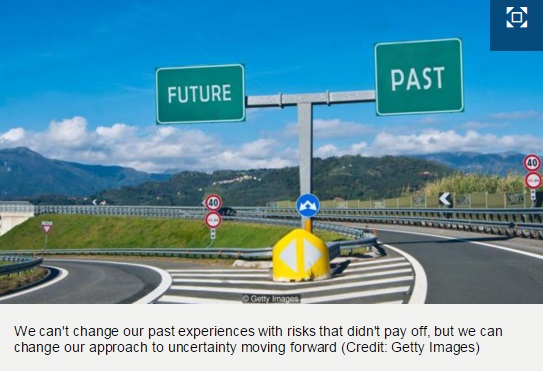It took Binta Niambi Brown several years to walk away in 2013 from the comfortable life she had built for herself as a corporate lawyer. She was going to start her own business, in a tough market that was already flooded.
By 2015, she had launched Fermata Entertainment, a production and artist management company based in Brooklyn, New York. Her boutique record label Big Mouth Records followed shortly after.
“I could have gone and worked for a record label as an executive and there were certainly opportunities to do that,” Brown says. “But there was a particular problem that I wanted to solve and I believed that I had a solution to it. I felt compelled to try that and see if I could build something and be successful at it.”
This past year, Brown’s record label won its first Grammy and produced a song that’s been streamed tens of millions of times. Her story can serve as inspiration for others who dream of taking a similar leap from an easy and secure way of life into the unknown.
But in a world where a guaranteed job for life is now a rare gem, the conventional career path no longer exists in most developed economies. So does this mean we have to take risks to get ahead? Bill Aulet, a senior lecturer at the Massachusetts Institute of Technology Sloan School of Management’s Executive Education program, believes so. He insists that doing things the way they’ve always been done at a time of such uncertainty is the “most risky thing you can probably do.”
This attitude is perhaps reflected in the way we view risk-takers. For better or worse, those who are brave enough to take the plunge are often celebrated. Afterall, playing it safe just doesn’t make for a great story. Would Elon Musk be idolized by entrepreneurs around the world in the way he is today if he hadn’t taken a gamble that saw his companies rocket from near bankruptcy in 2008 into the multibillion dollar enterprises Tesla and SpaceX?
So perhaps we should not be surprised to see risk-taking becoming a modern, global phenomenon. The “go big or go home” startup culture has cultivated a mentality that says only those willing to take big risks can reap great rewards. Those who do not take chances are on the path to “guaranteed failure”, according to Facebook founder Mark Zuckerberg.
But what does it take to be a risk-taker? And is it possible to turn yourself into one?
What makes a risk-taker?
Our ability to take a chance and be comfortable with an unknown outcome is affected by our own psychological make up, the physiological functions in our bodies, the culture in which we grew up and wider societal acceptance of risky behaviour.
Research has found, for example, that our individual testosterone levels can directly correlate with our appetite for risk. Since men tend to have higher testosterone levels than women, they can often be more willing to act impulsively, on partial information – even though both genders have similar appetites for risk.
“When you’re gearing up for a fight or you’ve taken a risk and it’s paid off well, your testosterone levels increase and you become more confident,” says Tara Swart, a neuroscientist and leadership coach based in London, England. On the other hand, when your risky venture leads to failure, your testosterone levels drop.
“Your brain will actually prevent you [from taking more risks] by giving you more memories of times when things went wrong,” Swart adds.
Our own experiences and our individual emotional histories will also affect how risky we’ll be. Your parents may have been particularly risk-averse during your upbringing, or you may have taken a risk in the past that didn’t pay off, making you cautious when you face your next “should-I-shouldn’t-I?” moment.
And then there are cultural factors. You might come from a society or social group that values steady and safe successes in a person’s professional, financial or personal life, over the chance involved in trial and error. In some environments, such as California’s Silicon Valley, taking risks is seen as being fundamental for success in the startup culture that flourishes there.
How to become a risk-taker
For those who are not natural risk takers, there are a few ways to make yourself more comfortable with taking a chance. To a limited extent, you can alter the physiological responses that might keep you from taking risks by mastering some of the psychological issues too.
Swart recommends a practice she refers to as “silencing the mind.” These techniques are designed to reduce “brain chatter” by training the brain on being in the present. Whether you’re walking, eating, or breathing, focusing on the sights, sounds, and physical sensations of that particular moment can help drown out our habit of replaying mistakes and worries, says Swart.
Such mindful practices, along with living a healthy lifestyle, have been proven to control levels of adrenaline and cortisol, the stress hormone that’s released when you’re under the kind of stress or anxiety that’s associated with taking a risk. In other words, mindfulness can keep your cortisol and adrenaline levels down, so that you can be clear-headed enough to make intelligent decisions – even taking some risks necessary for success in today’s ambiguous business world.
Taking risks also means overcoming some of the uncertainty and anxiety that accompanies such strategies. Srini Pillay, author of Think Less, Learn More: Unlock the Power of the Unfocused Mind and an assistant professor of psychiatry at Harvard Medical School, says biology plays “a very small fraction” in your risk-taking abilities compared to environmental factors.Hebelieves one of the most effective ways we can build resilience against the anxiety risk-taking can cause is to tap into the power of our unfocused mind.
Our conscious brain trains us to focus and use lessons from past experiences to make better decisions. But according to Pillay, most experts including Michael S. Gazzaniga, one of the world's foremost cognitive neuroscientists and author of The Mind’s Past, think that between 90 and 98 percent of mental activity is unconscious. In order to be a better risk-taker, it is vital to let your subconscious take over sometimes, helping your brain to pick up long-lost memories and connect ideas, says Pillay.
Some of the practical steps he gives to engaging our unconscious minds include resting, napping, and even wandering aimlessly, since studies have shown that if you walk in a rectangle, you are less likely to solve a problem than if you walk in an undefined path. He also suggests adopting a persona can help - a study from 2016 found that people are more successful at solving problems and inevitably, practicing intelligent risk-taking, when they behave like an eccentric poet rather than a rigid librarian.
“The brain is optimally designed to take both risk and certainty, focus and unfocus and for every human being learning how to balance the equation is crucial,” says Pillay.
Recalibrating your thinking
When it comes to overcoming our personal histories and bad experiences with previous risks, there’s an inevitable challenge. It’s also sometimes impossible to influence the views of our friends, family and colleagues when it comes to taking risks. But what we can change is the way we think about those elements and our reactions to them.
Deena Goodman, a psychotherapist and executive coach, helps senior level professionals change their “catastrophic thinking” patterns and become more at ease with taking risks. A classic example of uncertainty that gives many of us anxiety is public speaking. If you are asked to give a keynote speech at a major industry event, for example, you might know it could advance your career but you may also fear it could all go horribly wrong. By recalibrating your thinking, you can learn how to be comfortable with this uncertainty and attach less importance to the judgement of others.
“Most catastrophic thinking comes from being out of control,” says Goodman. “When we’re out of control, we try to latch on to control by predicting the worst possible outcomes.”
This fear of “what’s coming next” tends to drive the irrational thoughts that we have about ourselves, about how we’re going to be perceived and what’s going to happen to us. In instances where some risk is involved, Goodman advises her clients to write down their irrational thoughts, then for each of their worst-case scenarios, think: so what? In the case of the keynote speech, for example, you might forget what you’re saying midway through, but then what happens?
Going through every single one of these feared ‘bad’ outcomes can help “a person get in control over what feels almost impossible to control,” she says. She also suggests thinking of the many possible positive outcomes that can arise from taking a risk. What she finds is that along the way, people realise that they’ll survive most decisions that involve some risk and they come up with a lot of plan bs in case anything does go awry.
Taking a chance on yourself
Perhaps ultimately you will need to be willing to take a chance on yourself, to accept that you can make the right choices and cope with the bad ones should things go awry. But it’s worth reminding yourself that risks are almost always necessary for innovation and for progress, says Aulet. It’s not about taking every risk that comes along, but training your brain to capable of taking intelligent and educated risks while also allowing yourself to think about what would happen if things don’t go as planned.
For Brown, it is something she reminds herself of on a daily basis.
“It’s certainly a very different life for me,” she says. “I was making a very good living as a corporate lawyer, so going from that to being an entrepreneur and learning how to live differently and make choices in a different kind of way has been one of the most extraordinary rides of my life.”
“It’s funny because I never thought I could be happier with more risk and less security and with less certainty.”





